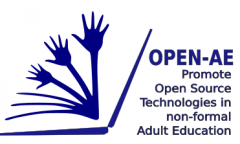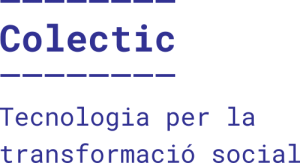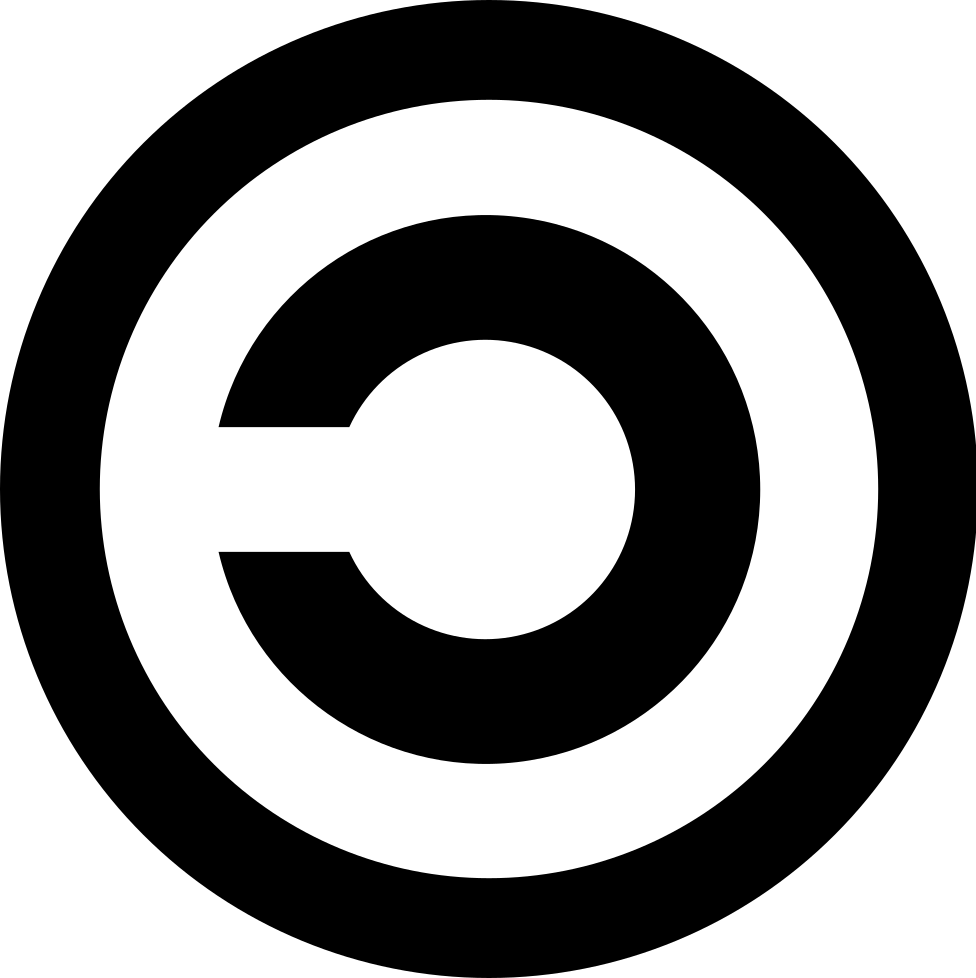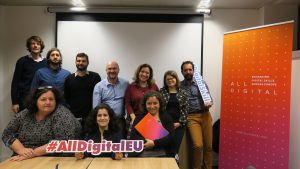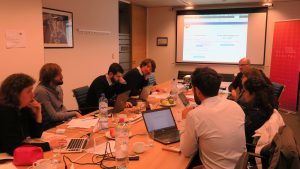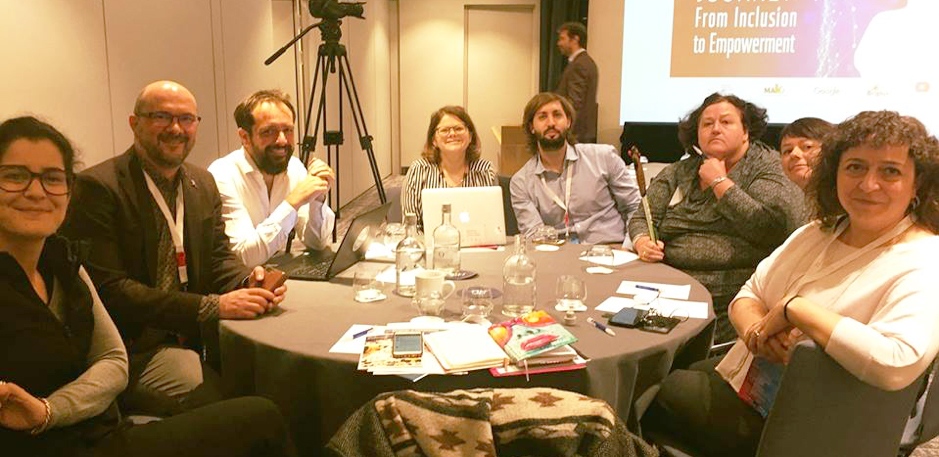1. Short introduction about Colectic
Colectic (formerly known as El Teb) is a non-profit cooperative that works for the inclusion, autonomy and empowerment of people and communities in the social, labour and technological fields. We understand and use technology as a tool for participation and social transformation. We work to promote universal access to ICT, by training and accompanying groups, social organizations and organizations from the Social and Solidarity Economy.
2. What is the background of Colectic in open and free technologies?
We believe that the technology is a just a tool -a very good one- to promote autonomy and help people to be empowered; that’s why we work to promote universal access to ICT by providing training opportunities and accompanying social groups and organizations within the use of the technological services, tools and sources, and to be able to develop their own potencial.
We work into the social and solidarity economy (the opposite to the private and governed by capitalist logics one) and, as a consequence, we’re committed to encourage citizenships to be creative and not just “technology consumers”, to be capable of manage the sources they need to find answers to their own needs and motivations. We promote FLOSS, open software and hardware, because we believe that technology must be a common good, guaranteed and non exclusiva in the knowledge society.
In this sense, Colectic offers and favors learning spaces in groups, in the community, and in the exploration of this type of technologies (such as our digital laboratory RavalFab -where people learn to learn how to do digital manufacturing or our Omnia Room -a computers room that we dedicate to digital literacy). We not only do it in our territory, the Raval neighborhood of the city of Barcelona, but we also do an important job advising, training and providing technical assistance to telecentre networks (digital training centers), and especially to the profiles of the decision makers of the local and regional administrations and to digital facilitators and trainers.
3. Can you highlight any projects or initiatives your organisation has done in open culture or free software? How do you see your organisation contributing to the open movement?
Besides offering learning spaces and consulting, advise and assessment, we have performed different migrations of computer’s operating system (from private networks of computers to open software network of computers), websites, productivity programs, etc. We have a long trajectory of accompaniment in the migration to free program to social entities too.
We also work on the advocacy level, as we promote the Floss culture by writting different articles in a web page dedicated to social entities and volunteers (see http://xarxanet.org/etiquetes/general/sobirania-tecnologica)
Colectic also co-organize the TecnoFESC (a fair) an space where you can find the main entities, cooperatives and companies that work in the technological world from a point of view of solidarity economy. Through TecnoFESC you can learn to promote open, free and neutral telecommunications, sustainable management and revaluation of computer equipment and public procurement responsible for electronic equipment to improve working conditions in producing countries. You will also find providers of technological services of the social and solidarity economy and drivers of technological procommunication, and will include the strategic use of telecommunications for the development of social justice. If you’re at Barcelona from 25 to 27 October 2019, you will be very welcome.
4. What challenges with integrating free software and open source in the training of low-skills adults came up in your research?
Colectic’s focus group participants are people who are specially sensitized in relation to the use of open technologies and open resources, and they considered that they are part of a group of privileged people who, through individual and self-directed learning strategies, have accessed a set of relevant knowledge in this environment. They promote and use this type of resources intensively.
The participants are aware that, to this day, the Catalan telecentre network (formed by more than 400 centers, more than half of them based on the exclusive use of the free and open software) uses free software for training. However, they are skeptical about the adherence of their colleagues and, especially, of the people in charge (management staff of the centers and telecentre networks project management staff) of the training centers.
In their opinion, companies, citizens and administration are very reluctant to adopt this type of open software and open educational resources.
It is necessary to generate a good curriculum based on open technologies and resources and generate strategies to keep it updated on a permanent basis, to avoid that the curriculum becomes obsolete with the passage of time.
On the other hand, they consider it is necessary the curriculum to be complete (include resources for all areas of competences) and that it must be accompanied by a guide of recommendations for its adoption. Especially institutions and governments should find it easy to implement.
What do you hope to achieve with the Open-AE project?
We hope we will find an easy path to help people, collectives and governments to use and promote FLOSS. Building an international community will help, for sure.
